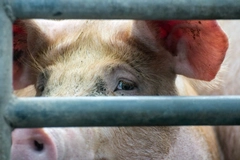
- Industry news
Industry news
- Category news
Category news
- Reports
- Key trends
- Multimedia
- Journal
- Events
- Suppliers
- Home
- Industry news
Industry news
- Category news
Category news
- Reports
- Key trends
- Multimedia
- Events
- Suppliers
SPECIAL REPORT: Food Brands Go Crazy for Film Licensing Opportunities

20 Sep 2016 --- Brand licensing is "vibrant" and growing in the food category buoyed by a number of film licensing agreements and can help build customer loyalty, according to experts. For marketers, brand licensing is a tried and trusted tool, which potentially can help a brand build customer loyalty, reach new consumers and create new revenue streams.
Outside of the food category, Richard Branson's Virgin brand is often cited as an example of a brand that has been successfully licensed to other companies, be it Virgin Mobile USA, Virgin Mobile Australia and Virgin Radio.
In return for licensing the Virgin brand, Branson, as the license holder of the Virgin brand, receives annual or triennial fees that can be as much as hundreds of millions of dollars over time.

Brand licensing is big business with global retail sales of brand-license merchandising now around $241.5bn a year, according to the latest figures, with rights holders earning $13.4bn.
In the food category, a big licensing deal this year was Mondelez buying the licence to manufacture, market and sell Cadbury-branded biscuits around the world from UK-based Burton's Biscuits.
The Mondelez deal may have grabbed headlines but there have also been a raft of other tie-ups in the food sector of late, particularly with film licensing studios slapping Star Wars and Minions branding on all manner of confectionery products.
"The UK is one of the leading markets in the food licensing sector. Licensees continue to develop innovative food formats," says Anna McArdle, an executive with licensing specialist Fluid World, who spoke to FoodIngredientsFirst.
McArdle points to film tie-up being a fertile area, citing Disney as “one of the leading licensing studios with major releases year after year”.
While many forays into food licensing are successful, such a move is not without risk if the tie-up is not a good fit.
Brand licensing is invisible to the consumer – they only see the licence asset – and putting brand assets in the hands of a third party can prove disastrous.
Furthermore, a licensing deal with a children’s film in the food category is not without danger.
This was in evidence this year when the UK campaigning group Children's Food Campaign (CFC) claimed that high sugar foods make up the majority of food licencing deals for film tie-ups involving Minions, Frozen and Star Wars: The Force Awakens.
Mondelez International’s decision to buy the licence to manufacture, market and sell Cadbury-branded biscuits around the world from Burton's Biscuits was largely welcomed by experts, who believe it will be money well spent.
Mondelez, which owns Cadbury, paid around $263m for the licence of biscuits such as Cadbury Fingers and said it expects the deal will lead to "exciting opportunities,” as it looks to give a boost to sales of biscuits, which represent around 40 percent of sales.
The global sales of biscuits are around $3bn, bigger than sales of chocolate, so it is easy to see why Mondelez, given its heritage in biscuits, sees an opportunity by acquiring the license.
Experts expect Mondelez is likely to flood the market with promotional activity, merchandising and new product launches, as Mondelez similarly did when it acquired the Cadbury Dairy Milk brand in 2010.
Despite Mondelez's marketing muscle, it will face stiff competition in the UK from Yildiz-owned McVitie's brand, experts argue.
More broadly, biscuits present bountiful opportunities for brand licensing activity, particularly for tie-ups with film studios.
The latest Stars War film [Star Wars: The Force Awakens], made its way onto packs of Chupa Chups, a Kellogg’s cereal, Fox’s biscuit bars, as well as cake decorations among others.
Disney, meanwhile, struck deals with Fox’s biscuits and various others businesses to develop Frozen-themed cupcakes, cakes and chocolate eggs, to cash in on its animated musical fantasy.
Lightbody Ventures, which entered licensing in 2013, is a company which has reaped success from a Frozen license and also makes Minions biscuits, on the back of the 3D computer animated film.
Speaking to FoodIngredientsFirst, John Steele, commercial director, extolled the merchandising opportunities for food brands around media.
He said: "There is more choice. In the digital age there are more TV programs available. There is more of everything to go at."
"Minions has been exceptional, as it has been in most categories. The retailer feedback and the buy-in has been fantastic and the next movie is out in 2017, so we're hoping to continue."
However, one concern expressed by Steele regarding film franchises is that some of those children who loved the first film and bought related biscuits, might not repeat the process when the next film in the franchise comes out, as they might have grown out of buying branded biscuits.
Despite this, according to McArdle, the UK market is still one of the markets driving innovation in the food licencing sectors.
She said: "Licensees continue to develop innovate food formats. Predominantly licensing with sweets and confectionery appeals to, and is aimed at, a young target audience. However, increasingly to older age groups. An example would be the recent Tic Tac/Minions collaboration."
Last year, Fluid World was appointed to develop the licensing program for Pusheen, the tabby cat famous as an emoticon on Facebook messenger.

McArdle said key celebration days are important drivers of sales.
She said: "A great collaboration for Pusheen has been with Boomf, the personalized marshmallow company. For seasonal events like Mothers and Father’s day, Pusheen has been their best-selling license and sales generator.”
It seems that in the food category, no brand licensing deal is too extreme.
Handwashing brand Carex signed a licensing deal with confectionery brad Love Hearts as part of its Fun Editions range, while Airpure International licensed retro ice cream brand Wall’s Funny Feet to create 3D strawberry-scented car air fresheners.
According to Oliver Dyer, director at Skew Studio, the brand licensing agency, which recreated a period sweet shop for confectionery brand Chupa Chups, food & restaurant brands are vibrant with interesting development.
He said: “From the perspective of creative development the excitement is in food & restaurant brands licensing out rather than licensing in. The recently announced cookware collaboration between John Lewis and LEON [the fast food company] is a great example.”
While food licensing deals for Minions, Frozen and Star Wars: The Force Awakens were deemed successful in terms of sales, such tie-ups came under fire from pressure groups.
For instance, the CFC has called for government action to crack down on deals involving foods high in sugar.
CFC co-coordinator Malcom Clark singled out Disney-which owns the Star Wars and Frozen films – claiming it had failed to deliver on a pledge in 2006 that 85 percent of food products suing its branding globally would be low in fat and sugar.
"It is hard to resist the pester power when your child is swept up in the latest animation or superhero film craze," said Clark.
"Voluntary pledges by film studios and manufacturers seem to be having limited effect in stemming the waves of sugary products using their connection with such movies to appeal to children.”
"Film and character licensing has become a £250m ($326m) vehicle for encouraging excessive sugar consumption in children, and that needs to stop.”
"Ultimately it comes down to the government following up its announcement of a sugary drinks tax by introducing similarly brave and bold measures on tackling junk food marketing."
But Disney can point to initiatives it has taken to promote health lifestyles such as a UK partnership with Public Health England on the Change4Life 10-Minute Shake Up campaign, which uses Disney characters to encourage kids to be more active.
Despite concerns from some pressure groups, it seems that brand licensing will continue to be a fertile area for brands looking to boost sales.
And as excitement around the next blockbuster film shows no sign of waning, brands would be foolish not to try and jump on board.
by John Reynolds










